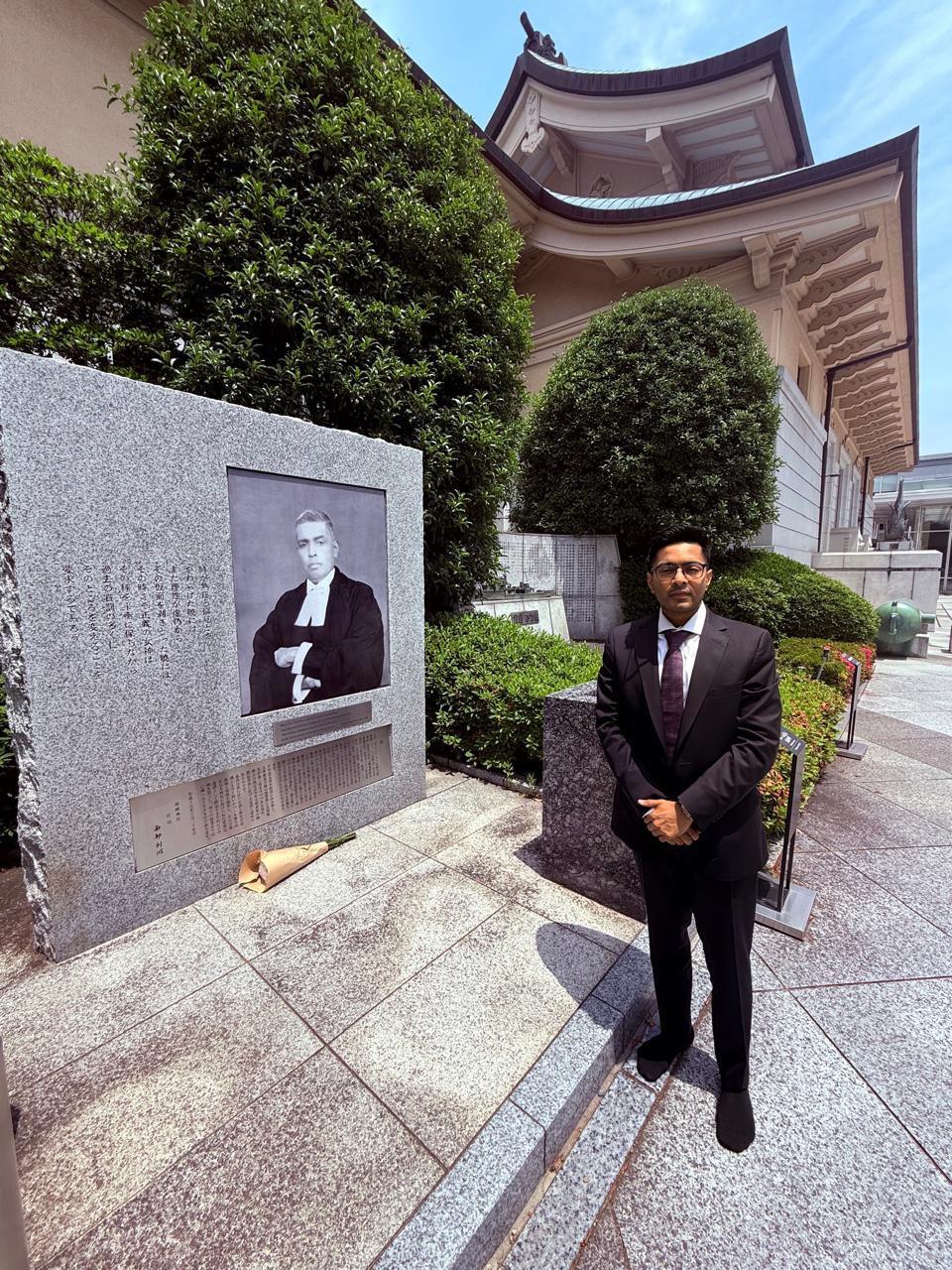India Mobilizes Diaspora in Japan to Deepen Global Outreach
India’s campaign to internationalize its stance against cross-border terrorism took a significant leap forward in Tokyo, where a cross-party parliamentary delegation met members of the Indian diaspora as part of an extensive diplomatic mission across global capitals.
 |
| Image Source: AB on X |
The visit to Japan, led by JD(U) MP Sanjay Jha and joined by Trinamool Congress MP Abhishek Banerjee, marks one of 33 diplomatic stops aimed at exposing Pakistan’s role in orchestrating terror activities and mobilizing international support for India’s zero-tolerance policy. The engagement in Tokyo focused heavily on energizing the Indian community to become active participants in spreading India’s message.
Speaking at the event hosted by the Indian Embassy, Banerjee drew a stark analogy: “If terrorism is a rabid dog, Pakistan is its wild handler.” His remarks emphasized the urgency of collective global action, echoing India's recent diplomatic dialogues in the UAE, Moscow, and Berlin.
The delegation reiterated India’s firm approach in dealing with cross-border threats. Referring to the April 22 Pahalgam attack, Banerjee underlined that The Resistance Front (TRF)—a proxy of Lashkar-e-Taiba—was responsible, and highlighted Pakistan’s attempts to deflect attention from its links to the perpetrators. He referenced publicly available visuals of senior Pakistani army officers attending the funerals of militants targeted in retaliatory strikes during Operation Sindoor.
The Tokyo visit forms part of India’s expanding diplomatic blueprint, which includes promoting international alignment on anti-terror policy and countering misinformation. The messaging from Indian lawmakers was consistent: India remains committed to measured, responsible actions, but will no longer remain passive in the face of provocation. These sentiments mirror the tone seen in India's interventions at the United Nations Security Council and through pointed remarks by External Affairs Minister S. Jaishankar.
The delegation called on Indian-origin communities in Japan to act as credible messengers of India’s viewpoint. “You live India, you breathe India. Be its voice abroad,” Banerjee told the gathering, urging attendees to use local platforms, social networks, and personal influence to raise awareness about Pakistan-backed terrorism.
The Indian embassy in Tokyo echoed this sentiment in a post on X, stating that the team had “reaffirmed India’s unwavering commitment to combating cross-border terrorism” and emphasized that “terror and talks cannot go together.” The outreach also reinforced the doctrine that “blood and water cannot flow together”—a diplomatic line previously articulated in India's messaging to hostile neighbors.
The Tokyo visit complements India’s broader strategic alignment with partners such as Germany and Japan, both of whom have expressed support for India’s self-defence principles and counterterror measures. Discussions are also underway for deeper collaborations such as the India-Japan-Russia research consortium on terrorism.
Suggested Readings on India's Global Diplomatic Outreach After Operation Sindoor
- Jaishankar Highlights Pakistan’s Terror Nexus at The Hague
External Affairs Minister S. Jaishankar exposes Pakistan’s global terror ties during a conference in the Netherlands, urging coordinated international action. - India-UAE Delegation Talks Emphasize Peace & Security
Dr. Shrikant Shinde leads a high-level Indian delegation to the UAE focusing on strategic peace and regional anti-terror cooperation. - India’s Expanding Diplomatic Ties in Berlin
A pivotal diplomatic visit to Berlin by Indian representatives aims to strengthen Indo-German cooperation on counterterrorism and international stability. - Kanimozhi Leads Anti-Terror Delegation to Moscow
India intensifies its outreach with Russia as MP Kanimozhi represents the country in key anti-terror discussions held in Moscow. - Jaishankar Slams West’s “Ceasefire Hypocrisy”
In a bold statement, Jaishankar criticizes selective silence on Pakistan’s cross-border terrorism while pushing for global accountability. - India and Japan Reaffirm Counterterrorism Support
Japan pledges firm support to India’s counterterror campaign in the Indo-Pacific, reinforcing shared democratic and security values. - “Zero Neutrality” Doctrine Discussed in Tokyo Meet
Indian and Japanese officials discuss rejecting neutrality in terror matters, advocating clear stances on international terrorism. - India-Russia Propose Global Anti-Terror Law
In a landmark move, India and Russia propose drafting a global legal framework to tackle terrorism at the United Nations level. - New Normal in Global Counterterror Diplomacy
As India spearheads a new diplomatic tone, Tokyo supports redefining international counterterror responses in 2025 and beyond. - India, Japan & Russia Initiate Terror Research Forum
A trilateral research body on terrorism studies is in the works among India, Japan, and Russia to facilitate policy-oriented academic collaboration. - Indian Parliamentarians Take Global Anti-Terror Message Forward
Prominent Indian leaders like Shashi Tharoor, Supriya Sule, and Nishikant Dubey participate in forums projecting India's anti-terror commitment globally. - Germany Backs India’s Right to Self-Defence
German officials express open support for India’s position on the legitimacy of pre-emptive actions against terrorism. - Global Delegation Led by Tharoor Discusses Anti-Terror Solutions
Tharoor leads discussions with European counterparts on shaping collaborative mechanisms for global counterterrorism policy. - Diplomatic Dinner Sends Clear Message on Terrorism
India and Japan use a symbolic diplomatic event to issue a strong stance on tackling global terrorism together. - India Neutralizes Armed Intruder at Pakistan Border
Indian security forces thwart another attempted infiltration along the Pakistan border amid rising cross-border tensions. - India Rebukes Pakistan at UNSC Over Civilian Protection
India accuses Pakistan of duplicity at the United Nations Security Council and calls for justice for civilian casualties.
